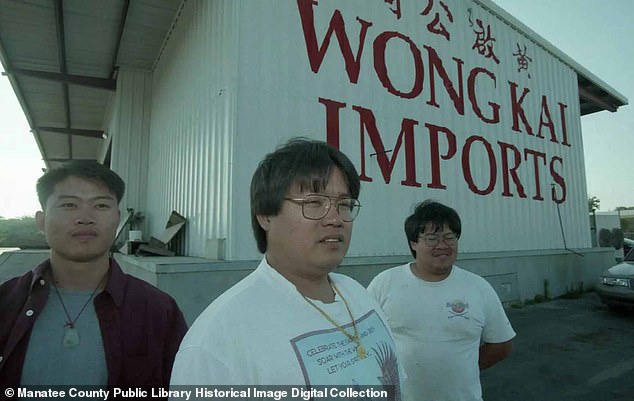The story of Wong Kai Imports isn’t just about a grocery store — it’s about a family, a community, and the growing struggle of small businesses trying to survive in today’s economy.
After more than four decades of serving loyal customers, a beloved Asian market in Florida now faces an uncertain future, with skyrocketing import tariffs threatening to shut its doors for good.
From Humble Beginnings to a Community Gem
Back in 1983, John Wong and his two brothers opened Wong Kai Imports after immigrating to the United States from Hong Kong.
What started as a dream to share a piece of their heritage soon became a thriving part of Manatee County.
For years, the store wasn’t just a business — it was a home for anyone craving authentic Asian sauces, noodles, or snacks that couldn’t be found anywhere else in the area.
The family once operated a successful wholesale warehouse in Bradenton, Florida, but Wong eventually scaled it down a decade ago to focus on his health.
Even then, the smaller grocery store continued to flourish, drawing customers from nearby cities, including Tampa.
Tariffs Take a Toll on Everyday Operations
Things began to change when the U.S. government introduced steep tariffs under President Donald Trump’s administration.
Ironically, Wong supported Trump during the election, hoping that new policies would make grocery prices more affordable.
But the results have been devastating for his business instead.
Over the past two years, grocery inflation has hit record highs.
Wong told NPR that nearly every product on his shelves now costs significantly more.
A box of ready-made sauce for the popular Chinese dish mabo tofu jumped from $2.75 to $3.95 at the start of the year — and now costs $5.
“We cannot catch up,” Wong said.
“Every shipment coming in, we have to put a new price on it.”
The Struggle to Protect His Customers
Wong’s concern isn’t just for his business — it’s for the people who depend on it.
Many of his regular shoppers are elderly residents living on fixed incomes.
To help them, he’s been absorbing part of the increased costs instead of passing them along.
But there’s only so long he can do that without going under.
“I talk to a lot of customers. They tell me, ‘Mr. Wong, don’t close. Stay open for another three years,’” he shared.
“I try, but it’s hard. It’s very hard.”
A Business Hit Hardest by International Policy
Much of Wong Kai’s inventory comes from Asian countries like China, Vietnam, Thailand, and the Philippines — precisely the nations hit hardest by the ongoing tariffs.
Trump’s threats of imposing tariffs as high as 145 percent on Chinese goods have made it nearly impossible for small importers like Wong to keep prices stable.
Half of his products come from China, meaning that even small increases in import taxes drastically affect his shelves.
Each new shipment brings more financial strain, and Wong now wonders whether his store will survive to the end of the year.
Customers Feel the Ripple Effect
The economic pressure doesn’t stop with business owners.
Wong often hears heartbreaking stories from his customers, like one elderly woman who now rations a single can of sardines throughout the week to make ends meet.
For many in the community, Wong Kai Imports has been more than a grocery store — it’s been a source of comfort and connection.
A Question of the American Dream
Since arriving in the U.S. as a young boy, Wong has worked tirelessly to build a life for himself and his family.
His success once embodied the American dream — hard work, perseverance, and community spirit.
But now, with prices doubling over the last five years and little sign of relief ahead, that dream feels like it’s slipping away.
As he looks over his shelves stocked with imported goods, Wong can’t help but ask the question that haunts so many small business owners today: “Is there any future? Is this the American dream?”
Share on Facebook «||» Share on Twitter «||» Share on Reddit «||» Share on LinkedIn
